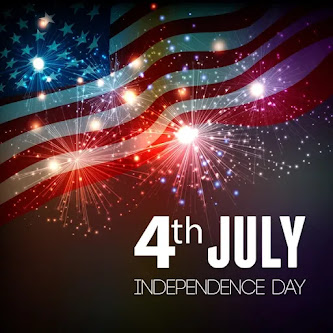Understanding the 4th of July: Unveiling the Significance of US Independence Day, Its Symbolism, and Festivities
INTRODUCTION
Welcome to our comprehensive guide on the 4th of July, a day of great significance in the United States of America. In this article, we will delve into the historical, cultural, and symbolic aspects of this important day, exploring the celebrations, traditions, and the deeper meaning behind Independence Day.
The Historical Context
On July 4, 1776, the Second Continental Congress declared the Thirteen Colonies' independence from British rule, setting forth the foundations of what would eventually become the United States of America. This momentous occasion marked the birth of a new nation, founded on the principles of freedom, liberty, and equality.
Symbolism of Independence Day
The 4th of July is not only a commemoration of the United States' declaration of independence, but it also embodies the core values that the nation stands for. Freedom, democracy, and the pursuit of happiness are the pillars upon which this great country was built. The American flag, with its stars representing the states and its stripes symbolizing the original thirteen colonies, is a powerful symbol of unity, resilience, and patriotism.
Festivities and Traditions
Independence Day is celebrated throughout the United States with great enthusiasm and a variety of traditions. Let's explore some of the most common festivities that take place on this special day:
Fireworks Displays
Fireworks are an integral part of 4th of July celebrations, captivating both young and old with their dazzling colors and awe-inspiring explosions. Across the country, cities and towns organize magnificent firework displays, lighting up the night sky and filling the air with a sense of wonder and joy.
Parades and Processions
Communities come together to organize parades and processions on Independence Day, showcasing their pride and patriotism. These lively events feature marching bands, colorful floats, and participants adorned in red, white, and blue, creating a vibrant display of national pride.
Barbecues and Picnics
Many Americans gather with family and friends for outdoor barbecues and picnics on the 4th of July. Grills sizzle with delicious burgers, hot dogs, and grilled corn, while picnic tables are adorned with an array of tasty treats. These gatherings provide an opportunity for people to bond, relax, and enjoy the company of loved ones.
Concerts and Musical Performances
Numerous cities host concerts and musical performances, often featuring local bands or renowned artists. From lively outdoor festivals to intimate gatherings, the power of music brings people together, fostering a sense of unity and joyous celebration.
Sporting Events
Independence Day is also synonymous with sports in the United States. Baseball, often referred to as America's pastime, takes center stage, with many Major League Baseball teams playing games on this day. Additionally, other sporting events such as soccer, basketball, and golf tournaments are held, offering entertainment for sports enthusiasts across the nation.
Reflecting on Freedom
As we commemorate Independence Day, it is essential to take a moment to reflect on the significance of freedom. The United States of America has been a beacon of hope for people around the world seeking liberty and the opportunity to pursue their dreams. It is a day to honor the sacrifices made by those who fought for independence and to appreciate the rights and privileges enjoyed by every citizen.
Conclusion
In conclusion, the 4th of July is a day deeply ingrained in the history and fabric of the United States. It represents the nation's struggle for independence, the values it upholds, and the unity of its people. Through the festivities, traditions, and reflection, Americans come together to celebrate their heritage, pay tribute to their forefathers, and cherish the freedoms they hold dear.



.jpeg)

.jpeg)

.jpeg)
.jpeg)
.jpeg)

0 Comments